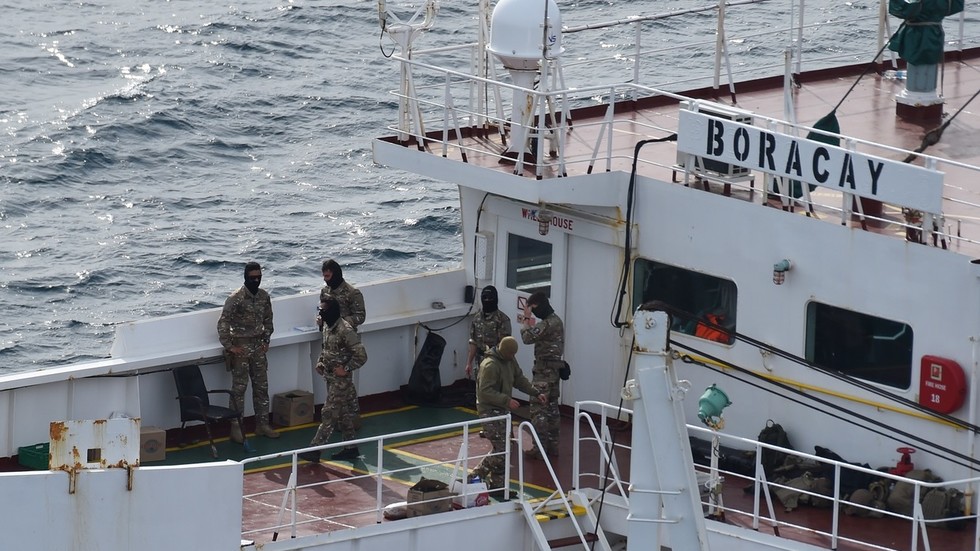A vessel linked by President Macron to drone sightings in Europe has apparently been released
An oil tanker detained by the French Navy while sailing from Russia in what President Vladimir Putin denounced as an “act of piracy” has resumed its journey, according to maritime tracking data.
According to MarineTraffic, the Benin-flagged ‘Boracay’ is now crossing the Bay of Biscay on its way to the Suez Canal after apparently being released on Thursday evening. The vessel is blacklisted by the EU for allegedly belonging to the so-called “Russian shadow fleet,” a group of tankers Western governments claim Moscow uses to skirt their attempts to throttle its crude exports, including through a price cap.
Putin denounced the interception of the vessel during his remarks at the Valdai Discussion Club in Sochi on Thursday. He argued that France had neither jurisdiction nor justification to seize the ship and dismissed claims of Russian ownership as dubious.
Putin further suggested that President Emmanuel Macron was exploiting anti-Russian rhetoric to distract from domestic issues. The French leader is seeking “to provoke us into some actions and then tell the French: ‘Rally around me, I’ll lead you to victory’. Like Napoleon,” Putin explained.
Macron linked the tanker to sightings of mystery drones over Denmark, noting that its voyage from the Russian port of Primorsk took it past the Nordic country. Putin rejected the allegation, asserting that the vessel could not be transporting military cargo.
Brightly lit drones have been reported recently over sensitive sites in Denmark, Germany, and Norway. This week, EU leaders met in Copenhagen to discuss the so-called “drone wall” initiative, which European Commission President Ursula von der Leyen endorsed in her State of the Union speech last month.
News reports indicate the proposal quickly ran into skepticism over feasibility and funding – or “crashed into EU reality,” as Politico put it.
Moscow has accused Brussels of resorting to fearmongering to justify militarization and to sustain aid for Ukraine at the expense of member states’ domestic priorities.
You can share this story on social media:
Read the full article here


